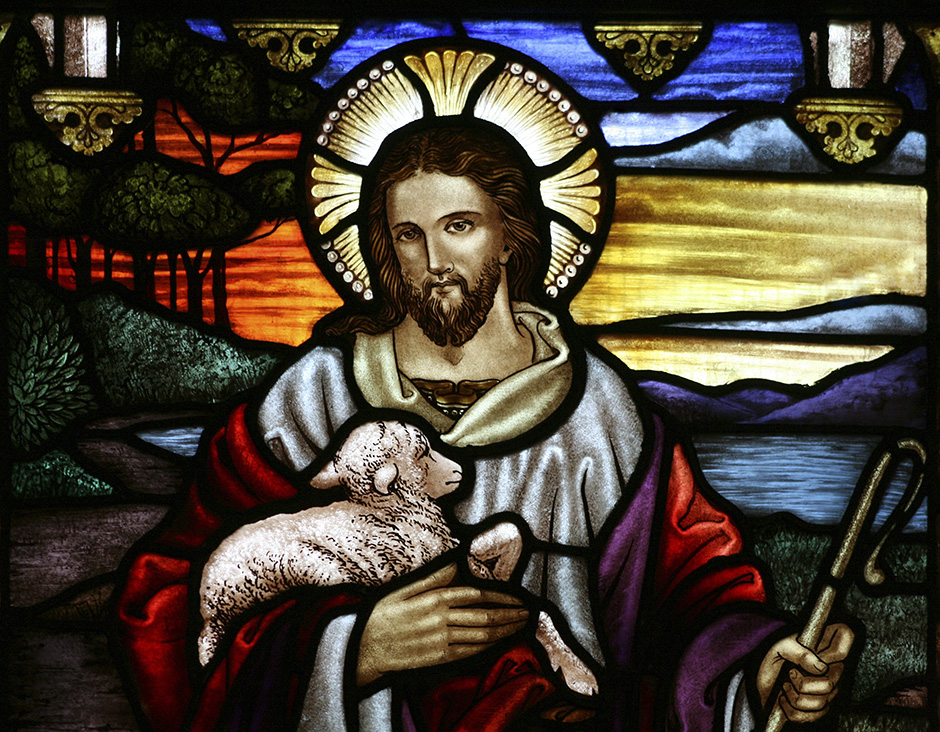



TONY HUDSON/CREATIVE COMMONS/WIKIMEDIA

TONY HUDSON/CREATIVE COMMONS/WIKIMEDIA
Perhaps you’ve been there. You visit a church, join and get involved in its ministries, both as a participant and a volunteer. Then something happens: schedule changes, transportation issues, family crises, new leadership that views the world differently than you do, bruised egos, hurt feelings.
Suddenly, you find reasons to skip Sunday worship and weeknight programs. You beg off ... giving yourself every excuse in the book except the real reason that you are sneaking out the back door.
Jesus tells the parable of a shepherd who persistently searches for one lost sheep. “When he has found it, he lays it on his shoulders and rejoices. And when he comes home, he calls together his friends and neighbors, saying to them, ‘Rejoice with me, for I have found my sheep that was lost’” (Luke 15:5-6, NRSV).
We’d all like to be treated like that one special, happily found, lost sheep. But some pastors and members are so busy focusing on the 99 members who don’t stray that they neglect the one who does.
The Rev. DJ del Rosario serves the 550-member Bothell United Methodist Church in Washington. His congregation discovered an answer to the lost sheep dilemma through a simple ministry.
Program minister Celeste Deveney explains.
“We had a list – a very old one – of people who had been active or were members who had simply stopped attending. This was our starting point. We then asked the congregation to clean out their closets and attics and give us any bud vases they weren’t using. Finally, we set up a different protocol for the flower chart (people who donate floral arrangements to be on the communion table each Sunday) and included a box to check to indicate that the flowers were to be given to the bud vase ministry following Sunday services.”
Volunteers were asked to drop in on the “lost sheep” and deliver the flowers, to let them know the church was still thinking about them.
“It was surprisingly easy to recruit eight people to do the visits,” she says. “We work in pairs, and everyone has their assigned week. On Monday mornings, we break down the Sunday arrangement (or buy a bouquet) and prepare at least three bud vases of fresh flowers.”
The results have been eye-opening, Deveney admits. “While the flowers are appreciated, it’s the visit that is treasured. Some of the people we visit are dealing with loneliness, depression and isolation. While the visits are brief, it breaks up their day and certainly gives them something pretty and fresh for their room.”
Sometimes, the “lost sheep” return to the fold.
“We noticed that one woman hadn’t come to worship in months,” Deveney recalls, “so someone called her to see how she was doing. It turned out that she was studying for a pharmacological degree, facing her last major exam and had been studying hard for months. We dropped a bud vase by her house with a note that we would be praying for her as she took her exam. She came to church the next week, and her daughter reconnected, too, and went on the summer youth mission trip.”
No one likes to be ignored. People return to church because someone contacts them personally, tells them they are valued, shows the church is there for them – and nurtures them back into the fold.
“Those of us involved in this ministry feel blessed to be able to do it,” Deveney says.
Barbara Dunlap-Berg, a member of Hillcrest United Methodist Church, Nashville, Tennessee, was grateful to receive a handwritten note from the director of lay ministries and outreach after she missed worship for a few Sundays. She is associate editor of Interpreter.
Contacting lost sheep
In his “Holy Soup” blog (www.HolySoup.com), Thom Schultz encourages congregations to talk to “past customers” – members who “dropped out” or transferred membership to another congregation.
“We invited past members to sit down with us and talk about why they left our church,” he writes. “Without hesitation, they all agreed to meet. They talked openly, calmly and candidly. And they were so thankful that somebody finally noticed they had left and cared enough to inquire.”
Here’s what to do:
- Form a small team of levelheaded volunteers to contact the lost sheep. Don’t enlist pastors or other church staff. First, the departed members won’t be as blunt with paid leaders. Second, your staff may already feel pummeled. Select volunteers who are not currently serving in any leadership capacity at the church. Find good listeners who will not get defensive when hearing negative comments about their church.
- Assemble a list of people who have gone missing. Contact them personally. Let them know they’re missed. Ask if they’d share why they left. Assure them your purpose is simply to listen, not to coerce them to return. You simply want to know how to improve.
- Set up a time, about an hour, to meet personally on neutral ground, such as in a restaurant or coffee shop. Do not attempt to collect information through written surveys or over the phone. Meet face to face.
- When you meet, reiterate you’re there to listen. Ask for honesty and candor. Say something like, “I know you haven’t been around for some time. We used to see you all the time. I’d really like to hear about what might have led to your departure. It may help us avoid problems and hurt in the future.”
- Take notes. Inform your interviewees that you’d like to pass along helpful information to appropriate people who can make improvements for the future.
- At the end of the interview, sincerely thank the interviewees. Extend a heartfelt apology that the church did not measure up to their expectations. This isn’t admitting guilt. It’s simply offering remorse and compassion for how they feel.
- Compile the results of the interviews. Look for common threads. Prepare a report for church leaders who have the responsibility to make your ministry as strong and effective as it can be. Be sensitive about handling accounts of individuals whom interviewees name. Share that information directly with the named individuals and/or their immediate supervisors.
- Consider the results and take appropriate action to improve your ministry.